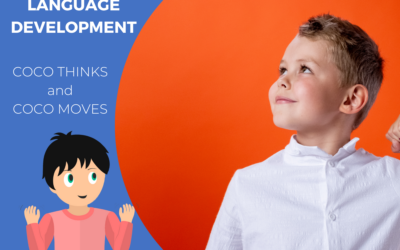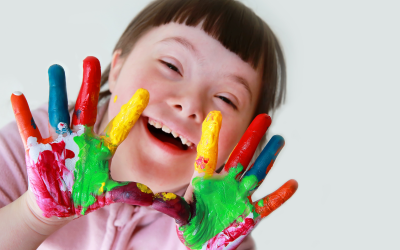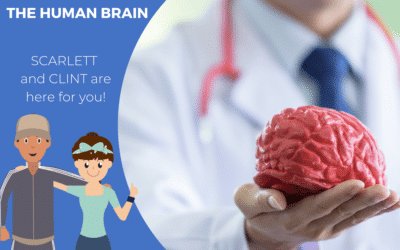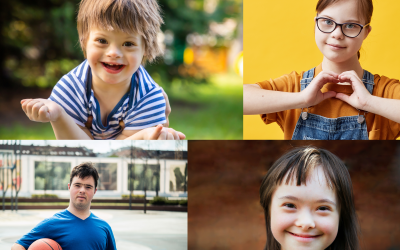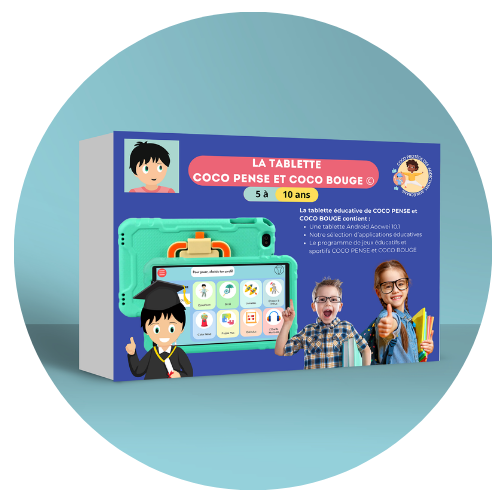You have an autistic child and you are looking for viable solutions to help them in their education? It is not always easy to take charge of your child’s schooling, and when certain disorders come into play, the choices become much more difficult to make.
A person with autism will need special guidance to be able to work successfully and gain a lot of knowledge for their future. It is therefore important to choose an adapted organization.
Have you ever heard of Center for Autism and Developmental Disorders? We have prepared an article to help you get all the information you need on this subject, so don’t wait any longer to read on!
Introducing a Center for Autism and Developmental Disorders
A CADD refers to a Center for Autism and Developmental Disorders. This means that you will be able to benefit from a structure that welcomes autistic children or children with other particular disorders requiring adapted supervision.
A Center for Autism and Developmental Disorders is therefore a structure that takes charge of your child’s education while ensuring that they can receive adapted care and education in line with their needs. The establishments are organized to take care of young people in different age groups ranging from 3 to 20 years old.
Generally speaking, a CADD is run by associations, but some regional health agencies keep a check on these establishments to verify the activities, practices and various management. The CADDs are therefore not left to their own fate and receive precise supervision to enable you to entrust your child with your care in complete confidence.
You will find specialized CADDs depending on the disability and the importance of certain needs, so it is important to find out beforehand in order to find the best CADD for your child. In general, your child will be admitted to a boarding school, but day schools are also possible in some establishments, with semi-boarding and temporary accommodation options. Whatever your needs for the care of your child with autism, it is important to remember that the cost of schooling at a CADD will be fully covered by health insurance. You will simply have to make sure that you fill in your file correctly so that you do not forget any element when setting up a CADD schooling.
A child’s arrival in a CADD
When your CADD is chosen, the team will welcome your child so that they can get orientated quickly and easily. The professionals at the schoolwork in groups to ensure that each activity works in conjunction with the other so that the various skills evolve at a balanced pace.
You will find information on the reception arrangements by visiting the adapted sites, this will allow you to prepare yourself properly before the big day. It is important to find out beforehand to find the CADD in your state without forgetting the importance of finding an establishment that corresponds to your needs. So, don’t hesitate to do some research before you start.
Once you have found the right facility, you will need to apply to the CADD. This will allow you to make a plan for your child’s life project and personalized schooling plan. A commission will take the time to study your file and the needs of your autistic child before validating the orientation and obtaining an admission to the school depending on the available places.
The mission a Center for Autism and Developmental Disorder
A CADD has an educational role for the children taken care of by the teaching units. The projects set up before admission will make it possible to draw up a plan for the life project but also for schooling. Based on this, your child will have access to supervision with several professionals to carry out personal work and acquire knowledge that will be useful for their future.
The pedagogical project is also developed to allow the child to get involved and develop, without forgetting that the main objective of each activity will be to help the young person to integrate into working life at the end of their studies. The CADD teams therefore play an educational and therapeutic role to enable the child to gain self-confidence and to develop at their own pace in order to feel ready to grow as soon as they leave the CADD.
You should therefore not hesitate to find out about existing establishments and to come and ask your questions during the open days. This will give you an insight into this schooling adapted to autistic children.
A program adapted for CADD’s students
Discover the COCO THINKS and COCO MOVES © app
The COCO THINKS and COCO MOVES © app contains more than 30 educational games to work on English, math, logic, memory or attention.
In addition, the application imposes a sports break every 15 minutes of screen time to teach a measured use of screens.
Much smarter than a parental control!
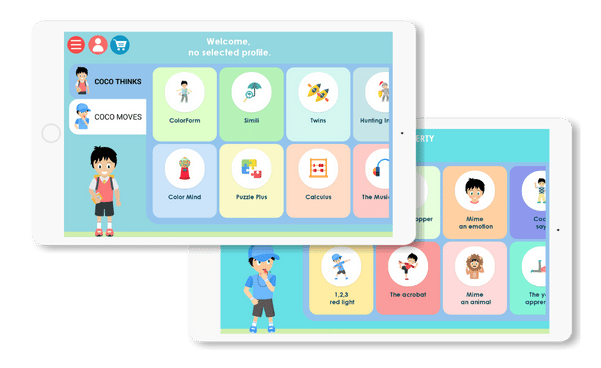
Other articles you might be interested in:
Supporting children with autism
Dynseo proposesSUPPORTING CHILDREN WITH AUTISM with COCO THINKS AND COCO MOVESDynseo and its team are very much...
Supporting DYS children with COCO THINKS and COCO MOVES
Dynseo proposesDYS disorders with COCO THINKS and COCO MOVESOur educational and pedagogical games program COCO THINKS...
Language development
Children communicate from birth with movements, crying, looking at each other or with smiles. After only a few months,...
Supporting children with Down Syndrome with Coco
Dynseo proposesDOWN SYNDROME with COCODown syndrome is a non-hereditary chromosomal abnormality that leads to the...
Supporting people after a stroke
Dynseo proposesStroke with CLINT, your brain training coachThe Dynseo team is very involved in helping people who have...
Supporting someone with Alzheimer’s
In this guide, we will detail how SCARLETT can be used for supporting someone with Alzheimer's. SCARLETT is a...
10 myths about the human brain you didn’t know
The brain is an incredible muscle, however there are many things we do not know, and what we do know is not always...
Using Digital Tools to Support Students with Special Educational Needs
Special Educational Needs (SEN) encompass a wide range of learning difficulties and disabilities that can hinder a...
Down Syndrome and Communication: Facilitating Interaction with Visual and Interactive Supports
When we think about Down syndrome, we often recognize it as a genetic condition that affects physical and cognitive...
How to Track Progress in People with Down Syndrome Using Digital Tools
Down syndrome, a genetic condition caused by the presence of an extra chromosome 21, affects approximately 1 in every...





